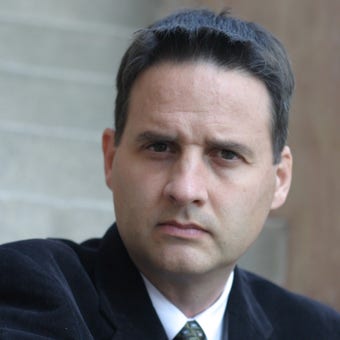It's been over a century and a half since the first Mormon ran for president and that didn't go too well what with Joseph Smith getting murdered and all. There have been others since of course, notably former Michigan governor George Romney who unsuccessfully ran in 1968.
Today, Romney's son Mitt is poised to become the conservative favorite for the GOP nomination, but no Mormon candidate has come this close before and resistance to the idea of an LDS president still appears to be strong. One recent poll suggests that 35% of Americans would not be willing to vote for a Mormon for President.
To view that poll, click here.
But it's unlikely that general election voters will have that chance unless Romney can first convince GOP primary voters of his case, and the key to making it through that gauntlet will be his ability to convince Evangelical Christian voters that he is presidential timbre.
According to pollster Stu Rothenberg, in New Hampshire, a state that Rothenberg correctly notes isn't known for a large Evangelical population, 20% of GOP primary voters in 2000 were Evangelicals while in South Carolina and Iowa, 34% and 37% respectively identified themselves as members of the "religious right." Considering that those who would identify themselves as "religious right" are a subset of the Evangelical voting community, these numbers indicate that this group make up a sizeable base of the GOP primary voting population in at least three key primary states.
To view that poll, click here.
While it's not impossible, it is unlikely that any GOP candidate will be able to claim the Republican nod without winning over a sizeable number of these values voters.
Romney does seem to understand the importance of wooing these voters and has already begun courting in earnest. Meeting with a group of Christian leaders recently, he was said to have assured them that he shared various doctrines with them which led one Baptist leader, Richard Lee, a pastor from Cummings, Georgia, to quip, "so you're really a Baptist!"
But Romney is no Baptist, but rather a member of the church of Jesus Christ of Latter Day Saints, a church that not a few Evangelicals consider to be a cult, as opposed to other Christian denominations like the Lutherans, Methodists, Presbyterians etc. which they view as legitimate branches of the Christian tree.
While Romney's outreach to such Christian leaders is smart to be sure, if he continues to go into the kind of doctrinal detail that he has been getting into, answering questions on his views of the nature and work of Christ for example, it will create severe strains that could cripple his chances for the presidency by reminding them of their clear doctrinal differences, thereby increasing their discomfort level at a time when he should be focusing on the political issues that unite them. Debating religious dogma and theology will do nothing more than raise the dander of that wing of Christendom which specializes in pointing out the doctrinal errors of others and the results could be messy.
What Romney should focus on instead are his stands on the issues and the fact that his opponent may very well be Hillary Clinton. Instead of opening debates on the nature and deity of Christ, whether or not Lucifer and Jesus were brothers, the origins of plates found in the desert, or the sanctity of the Book of Mormon, the only doctrine that Romney should discuss with Christian groups is the ancient one known as "the enemy of your enemy is your friend" which has been followed assiduously in the Middle East and will also work effectively for Romney. Reminding Evangelicals and Catholics that he is with them on many issues that they hold dear while his likely opponent is not, will likely overcome any doctrinal differences they may have with him, provided that he doesn't go out of his way to remind them.
His pitch should be simple:
"I consider myself a Christian, not a member of a cult. But I understand that millions of Americans feel differently and I respect that and choose not to debate our doctrinal differences. I am not running to be your pastor, but your President. From abortion to gay marriage to social justice and the environment, I am with you. And be assured that when I take the Oath of Office, I will place my hand, as every other president in hour history has done, on the Holy Bible, the book that our Founding Fathers valued and all Americans value."
Romney's opponents, both in the primary and in a general election run will likely try to drive a wedge between him and conservative Christians by trying to highlight his faith and the doctrinal differences that divide them and the outcome will largely depend on his ability to keep them at bay and keep his campaign focused on politics not religion.
Mark Joseph is an author and media producer and the editor of "Pop Goes Religion-Faith In Popular Culture." He has written on politics and popular culture for National Review, Beliefnet, Townhall and the Huffington Post.

